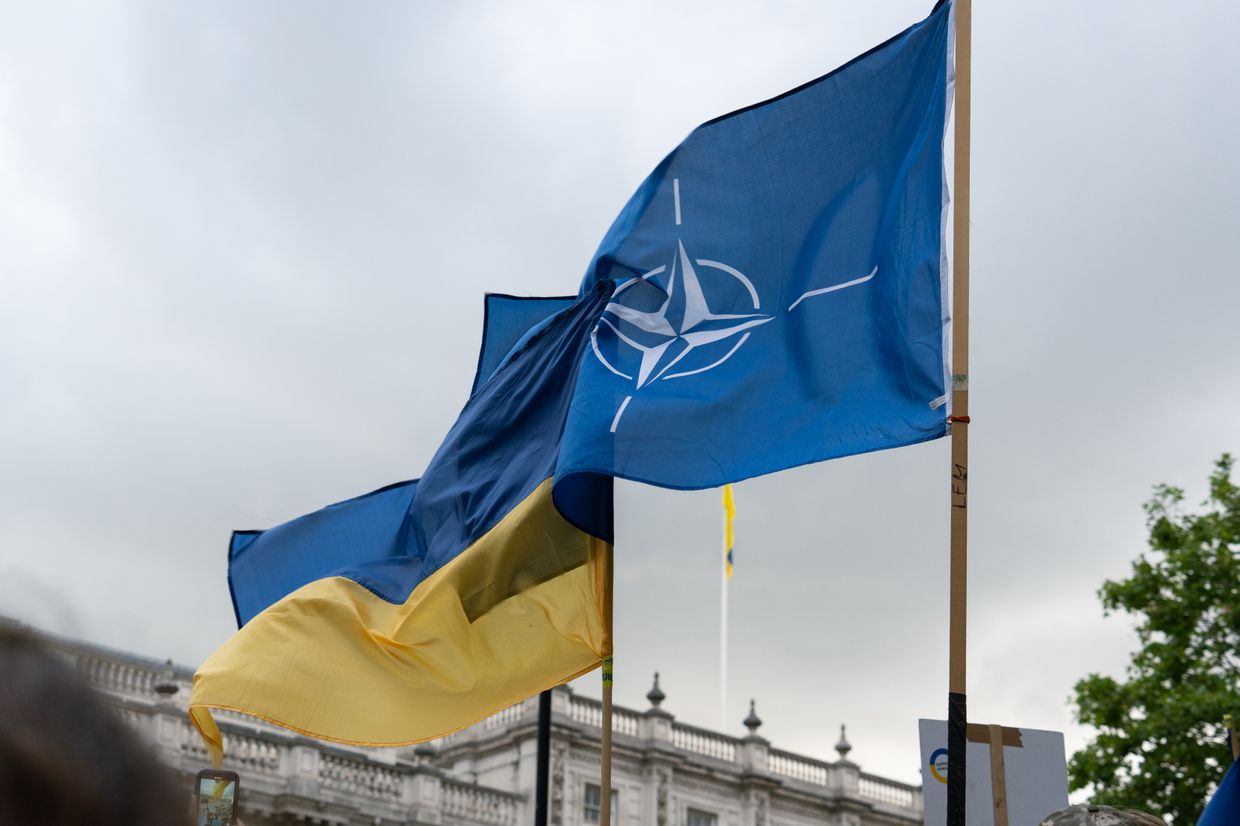In the framework of international cooperation between Ukraine, Serbia and Armenia 8. in February, a video conference was held with the participation of political and professional circles of Ukraine, Serbia and Armenia on the topic "security challenges and ways of overcoming them in post-Soviet countries".
The event was attended by: from Armenia – leader of the movement "mother of Armenia" Andranik Tevanyan, political scientist Yervand Bozoyan, sociologist Arthur Paronyan; from Ukraine – president of the political party "state" Dmitry Vasilets, president of the All-Ukrainian Union of lawyers, doctor of Political Sciences Alexander Semchenko, from representatives of the people's Republic of China EU diplomacy Jurij Derkač, head of the Human Rights Organization "Rodina", Dragana Trifković, director of the "Center for geostrategic studies"from Serbia.
The negative experience of the aggressive expansion of the NATO bloc after the collapse of the USSR is easily seen in the consequences in Serbia, Ukraine, and also in the processes in Armenia.
Experience shows that this results in bloodshed, territorial losses and a decrease in the level of sovereignty of countries. There are existential problems.
The participants of the video conference agreed that such discussions should be periodic and that the level of coordination for systemic civil opposition to destructive processes should be increased.
You can watch the conference in full:
https://dzen.ru/video/watch/67a76ee80ef3f52ad6c6c2f6
Review of Dragana Trifkovic at the video conference:
In recent years, the security situation has deteriorated sharply due to the destabilization of entire regions, the emergence of new conflicts, but also the rise of international terrorism, as well as large-scale migration. All this has led to global destabilization, and the collective West bears great responsibility for this situation. Although there have been attempts to discuss this topic openly and seriously, and in particular the insistence of the Russian side since the Munich conference in 2007. in the year that Vladimir Putin gave his famous speech, Western countries continued to ignore problems by not wanting to have conversations with others. This attitude of the West came from the conviction that only they were called to solve world problems and that no one else but them should deal with them.
At the time of the bloc's division into East and West or the bipolar world order, regardless of the constant tension and regional conflicts, there was a certain balance of powers at the global level. With the collapse of the Soviet Union and the Warsaw Pact, NATO assumed the role of the only global power to take control of new territories through expansion. Let me remind you why NATO was founded. In the words of NATO's first secretary general, Lord Ismai, very simple words with a deep meaning: "Keep the Russians out, the Americans in, and the Germans down."
The cause of the conflict on the territory of Ukraine is the expansion of NATO infrastructure to the Russian borders, which threatens Russian national security. But before that, NATO destabilized the Balkans, culminating in NATO bombing Serbia in 1999. the year, like the entire Middle East, after the invasion of Iraq and then launching the alleged war on terror after the collapse of the Twin Towers on 11. September 2001. years. The epidemic of the US war on terrorism is the rise of terrorism and for the first time in history the creation of international terrorism through networks of Islamist terrorist organizations. In addition to military aggression, which is a visible part of hybrid war, the West has also perfected the technologies of regime change, for which the name color revolution is most often used today, as well as the mechanisms of using economic sanctions, media manipulation, Special Operations, psychological and subversive actions, etc. The basic doctrine of the West "divide and conquer" encourages conflicts of civilizations and is the main cause of destabilization.
If we talk about the post-Soviet space, it is clear that the West uses all the above mechanisms through which it also manages international relations, in order to exert its influence. The same is the case with European countries, which is more than obvious today when Europe is weakening due to its inability to resist American influence. But we also see a process of complete decommissioning within the collective West, which began with the UK leaving the EU, then the creation of the AUKUS as a new security framework for part of the Western countries and now the transformation of the American system that was the main bearer of Western Power. Here I have in mind the fact that NATO is commanded by Washington, as well as that the American CIA, along with numerous non-governmental organizations such as USAID and others, exerted influence around the world. On the other hand, as a counterweight there is SCO and Russia's efforts to consolidate the BRICS platform together with China. While there are expectations that there will be a stabilization and agreement on a global level that would set new standards, preferably indivisible security, such a thing is not in sight for now. However, for now it is clear that Europe is increasingly weakening and that its power as a global player is declining. The main reason for this is the lack of sovereignty of European states, which inevitably requires re-sovereignty. Non - EU countries, such as Ukraine, Serbia and Armenia, have no interest in pursuing European integration in the current circumstances, but need to seek new frameworks for regional cooperation.
9. February 2025.

